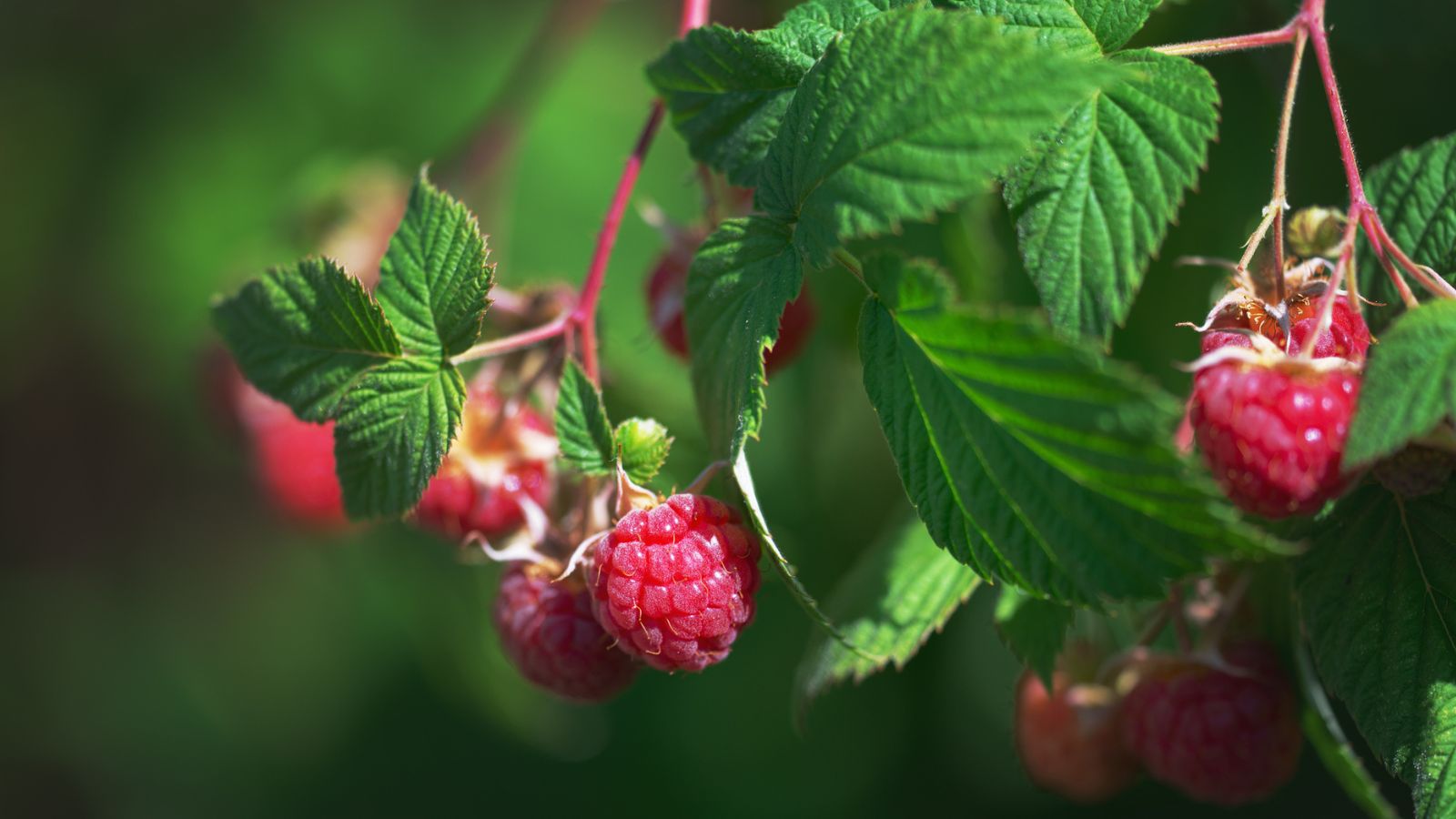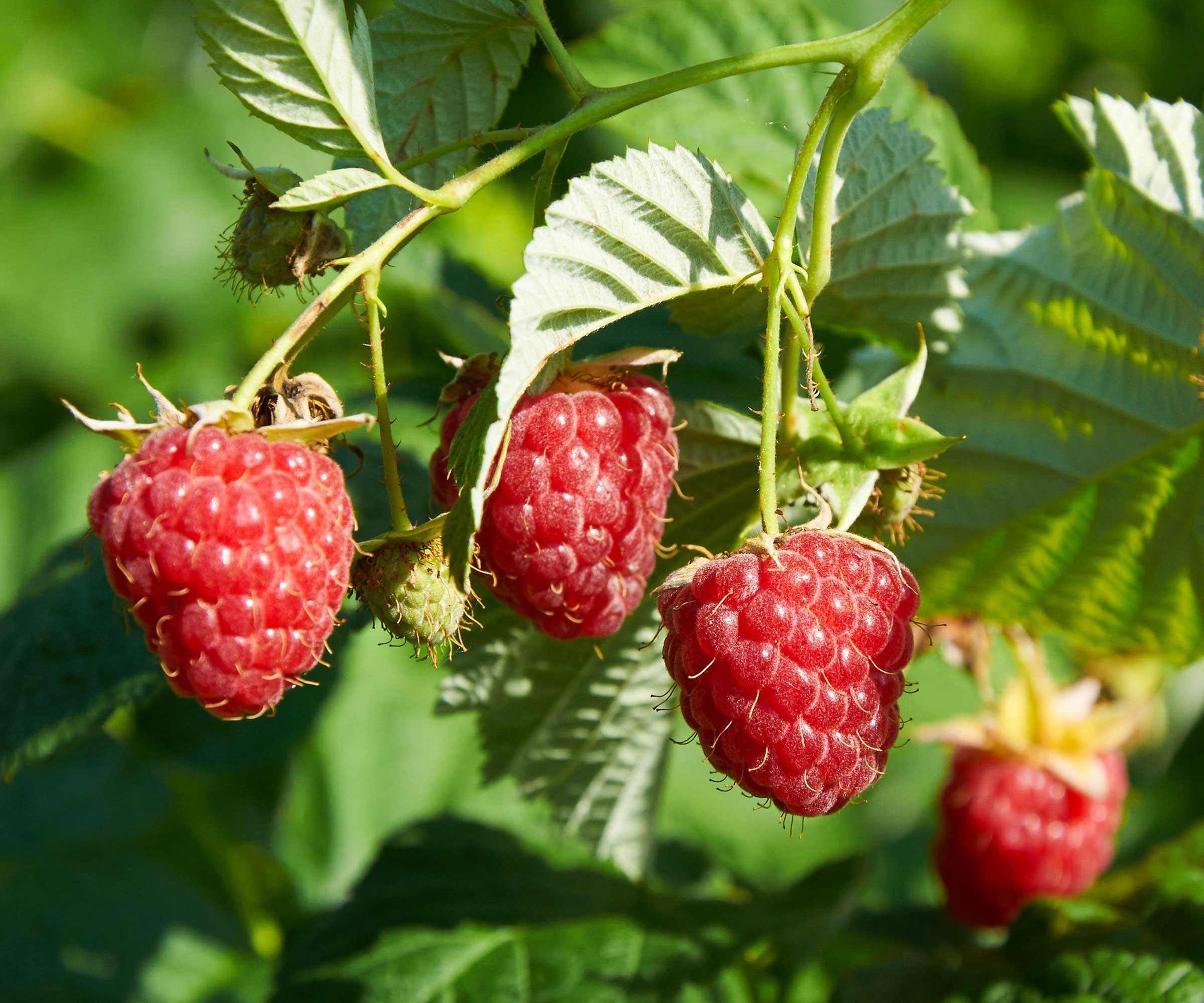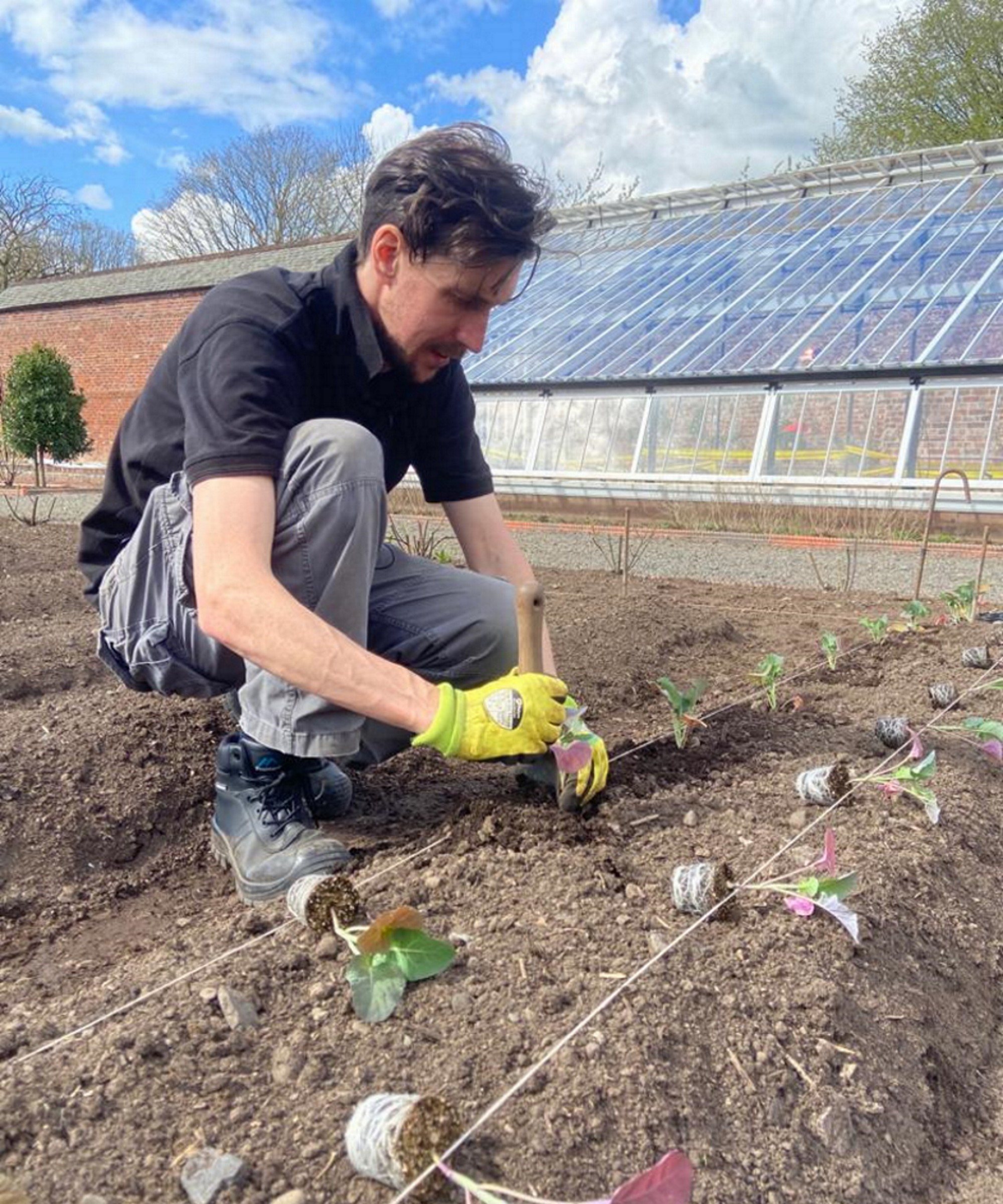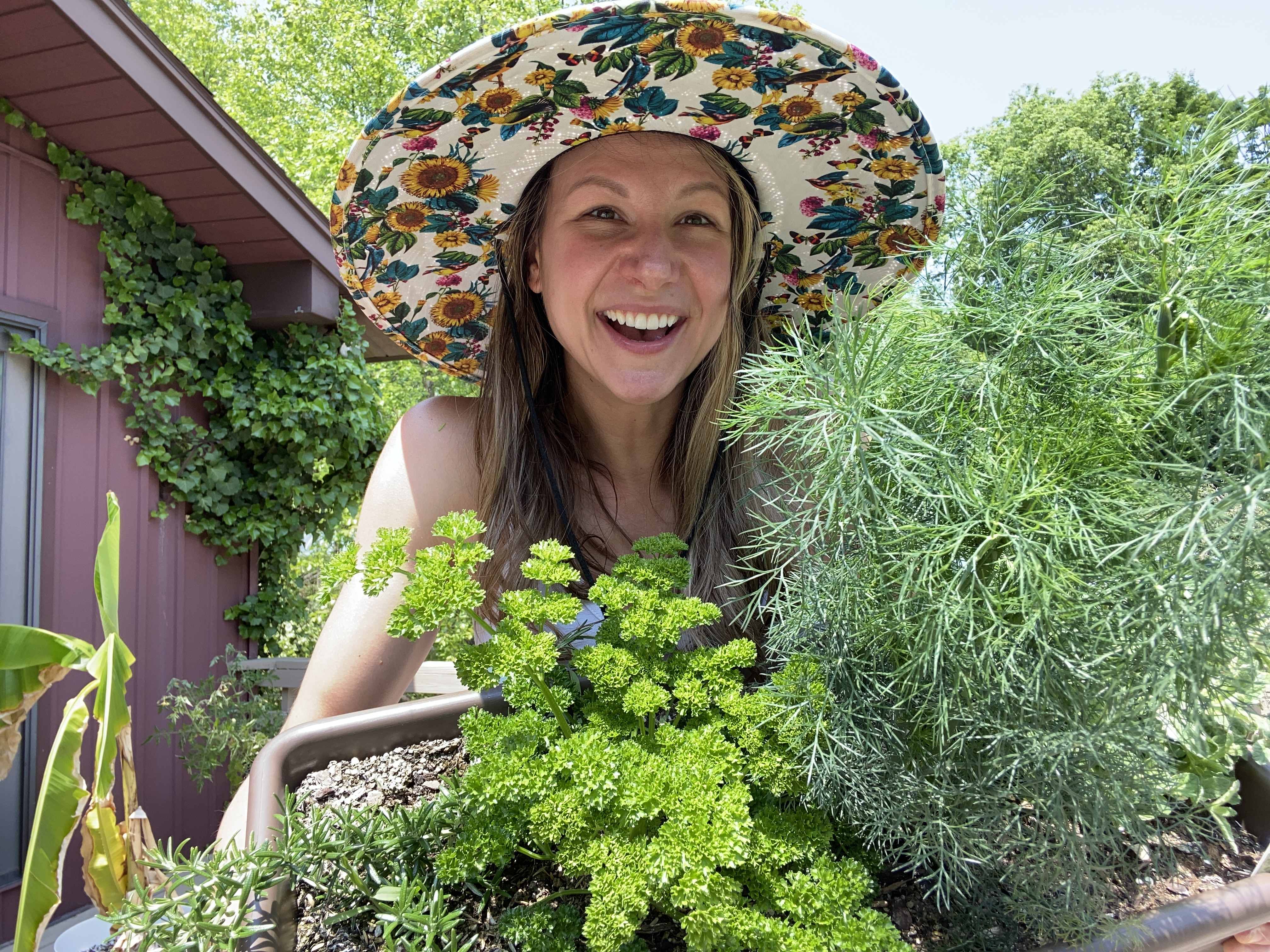When to fertilize raspberries – expert tips for fruitful plants
Discover exactly when to fertilize raspberries to get the best yield from this sweet crop


Design expertise in your inbox – from inspiring decorating ideas and beautiful celebrity homes to practical gardening advice and shopping round-ups.
You are now subscribed
Your newsletter sign-up was successful
Want to add more newsletters?

Twice a week
Homes&Gardens
The ultimate interior design resource from the world's leading experts - discover inspiring decorating ideas, color scheming know-how, garden inspiration and shopping expertise.

Once a week
In The Loop from Next In Design
Members of the Next in Design Circle will receive In the Loop, our weekly email filled with trade news, names to know and spotlight moments. Together we’re building a brighter design future.

Twice a week
Cucina
Whether you’re passionate about hosting exquisite dinners, experimenting with culinary trends, or perfecting your kitchen's design with timeless elegance and innovative functionality, this newsletter is here to inspire
If you know when to fertilize raspberries, you can help your plant, whether it's in the ground or in a container, be as healthy and as fruitful as possible.
Fertilizing raspberry plants is an ideal way to stimulate growth ahead of the growing season, but you do need to know the type of raspberry plant you have: summer-fruiting, which produce fruit from June to August and fall-fruiting, which is more bush-like in appearance and will produce fruit in, you guessed it, fall.
We speak to gardening experts to discover when to fertilize raspberry plants in your garden so you can give your plants the best chance of success.
When to fertilize raspberries

For those who have a summer fruiting raspberry plant, fertilization should be done in early spring, just as the plants break dormancy. This application of fertilizer provides essential nutrients that help the plants put on new growth and set buds for the coming year's fruit.
Homes & Gardens' garden expert, Drew Swainston says, 'An important part of growing raspberries is to feed both summer and fall-fruiting raspberries in the spring when new growth is starting to emerge for the year.
'Compost or well-rotted manure are fantastic, and organic, options for feeding raspberries. They can be added both at the time of planting, or when you transplant raspberries, and also as an annual mulch in spring to help smother weeds and enrich the soil. Always ensure that any manure used is well-rotted, as fresh manure can burn roots and potentially kill plants,' continues Drew.
'A second feed can occur in the early summer, primarily to stimulate the growth of new canes in summer-fruiting varieties that will carry next year’s fruits – they will be the canes that remain after you prune raspberry bushes.'
Design expertise in your inbox – from inspiring decorating ideas and beautiful celebrity homes to practical gardening advice and shopping round-ups.
Lindsey Hyland, from Urban Organic Yield, says the ideal time for an early-summer feed is ‘just before the berries start to ripen.'
However, she warns: ‘Fertilizing too late can cause excess vegetative growth at the expense of berry production.’
That flush of vegetative growth later in the year, as a result of feeding raspberries after the end of June, can also be more susceptible to damage during winter.
'If you are growing raspberries in pots, then they require a bit more of an intensive schedule of feeding. Add a slow-release fertilizer when planting the canes in the pots and then feed them every two weeks with a high potash fertilizer from April to September,' continues Drew.
'When planting raspberry canes, it is recommended to enrich the soil prior with homemade compost or well-rotted manure. The addition of a balanced slow-release fertilizer at the time of planting raspberries will also give extra nutrients to support the plants as they grow.
'In the spring, established raspberries should also be fertilized with a balanced fertilizer, which has three plant fertilizer numbers showing as the same, such as 10-10-10 or 20-20-20.'

Drew qualified as a journalist before studying for a horticulture qualification, after which he worked as a professional gardener for several years, specializing in kitchen gardening. He's now bringing his expertise and passion to Homes & Gardens as a member of our team.

Lindsey Hyland grew up in Arizona and attended the University of Arizona’s Controlled Environment Agriculture. She has worked on various organic farms and shares her gardening journey on Urban Organic Yield.
Which raspberry fertilizer to buy?
Zahid Adnan, Founder of The Plant Bible, recommends conducting a soil test to determine the nutrient requirements of your raspberry plants before buying raspberry fertilizer.
‘A soil test can identify any deficiencies or imbalances in the soil, allowing you to tailor the fertilizer application accordingly,’ he says. You can buy soil testing kits from Amazon for this purpose.
As Drew says above, raspberries require a balanced fertilizer with equal amounts of nitrogen, phosphorous, and potassium, like a 10-10-10 fertilizer.
Anna K Ohler, Founder of Bright Lane Gardens, says there are also several organic fertilizers for raspberry plants. ‘Consider using compost, well-rotted manure, or organic fertilizers formulated for fruit-bearing plants.’
'You can make a homemade natural comfrey fertilizer that would be mixed with water and applied to the crop, or buy organic and natural slow-release granular fertilizers, such as the Earth-Care Plus All Purpose Natural Organic Fertilizer available at Walmart, while bone meal, blood meal, fish emulsion, or chicken manure pellets are also ideal solutions,' says Drew.

Zahid Adnan is the Founder and Editor of The Plant Bible , as well as managing a plot of 10-hectare agricultural land. He is also involved in a project to develop sustainable urban farming practices by utilizing farming technologies to increase food production and reduce environmental impacts.

Anna originally started gardening as a hobby after completing her MBA. She soon turned it into her career consulting on landscape and garden design with local clients, and now runs her own full-service plant nursery in Northern Michigan.
FAQs
What is the best time of day to fertilize raspberries?
The best time of day to fertilize raspberries in in the early morning or late evening, when there is no sunlight on your garden. Obviously, it's best to avoid fertilizing raspberries just before a big rainfall, too. This will allow fertilizer to be properly absorbed by the plants.
Key to fertilizing raspberries is timing: and often this timeframe is built around bolstering the plant when it shows new growth.

Seraphina is a contributing editor at Homes & Gardens, writing Solved features on organizing and storage. She loves to decorate and also grow her own produce from her home in London. Her previous experience includes working at Women's Health and Fabulous Magazine.